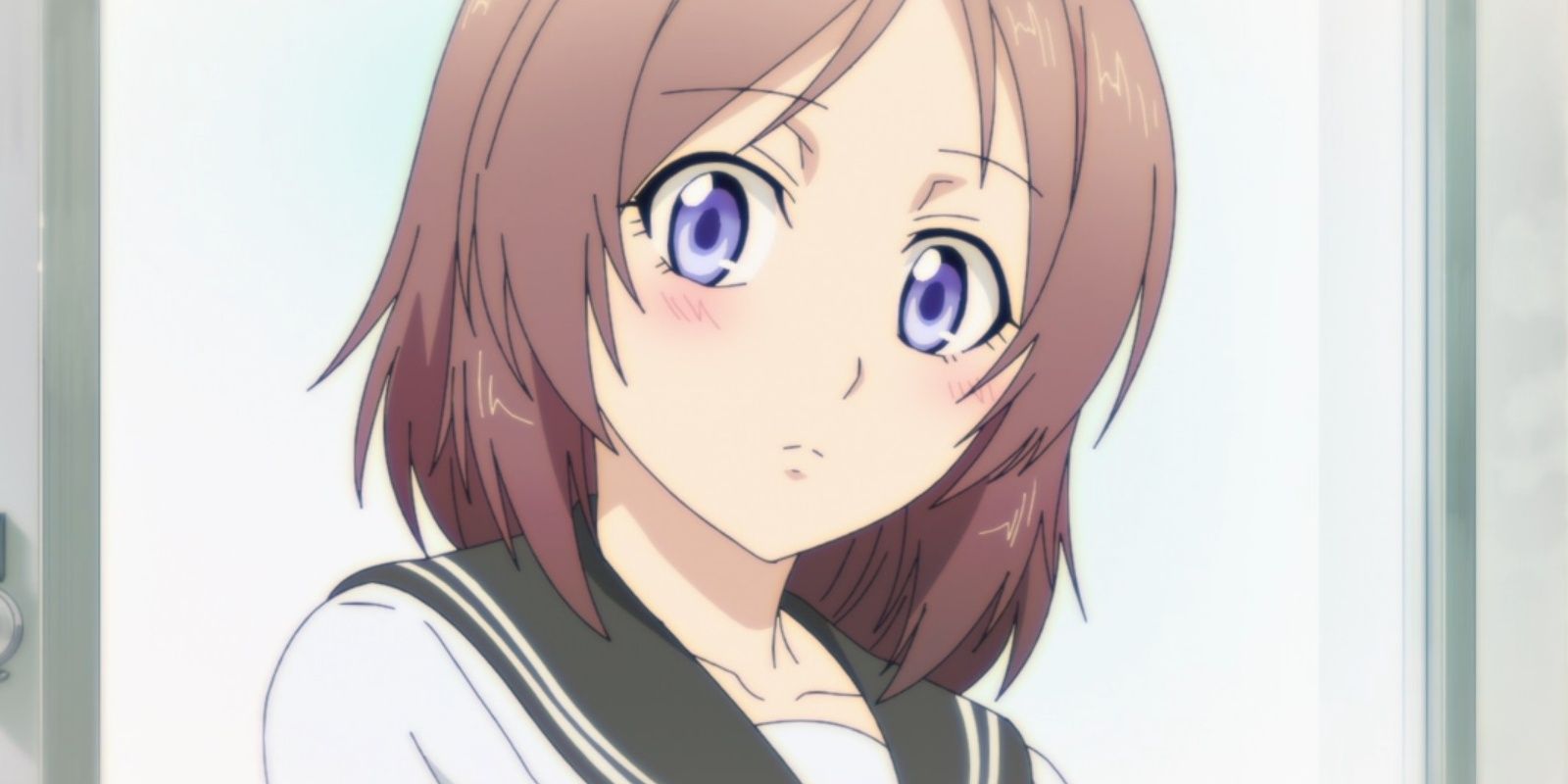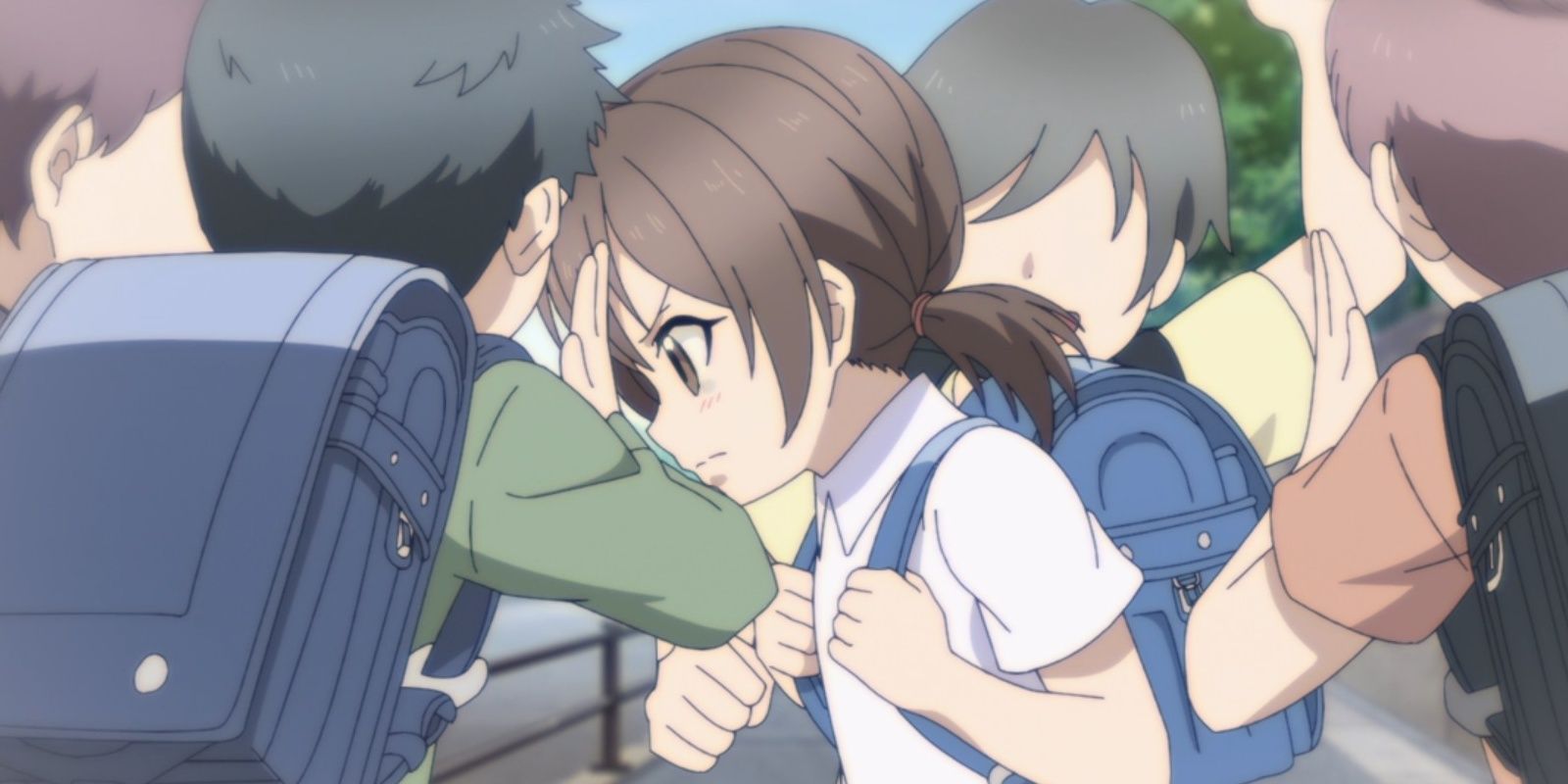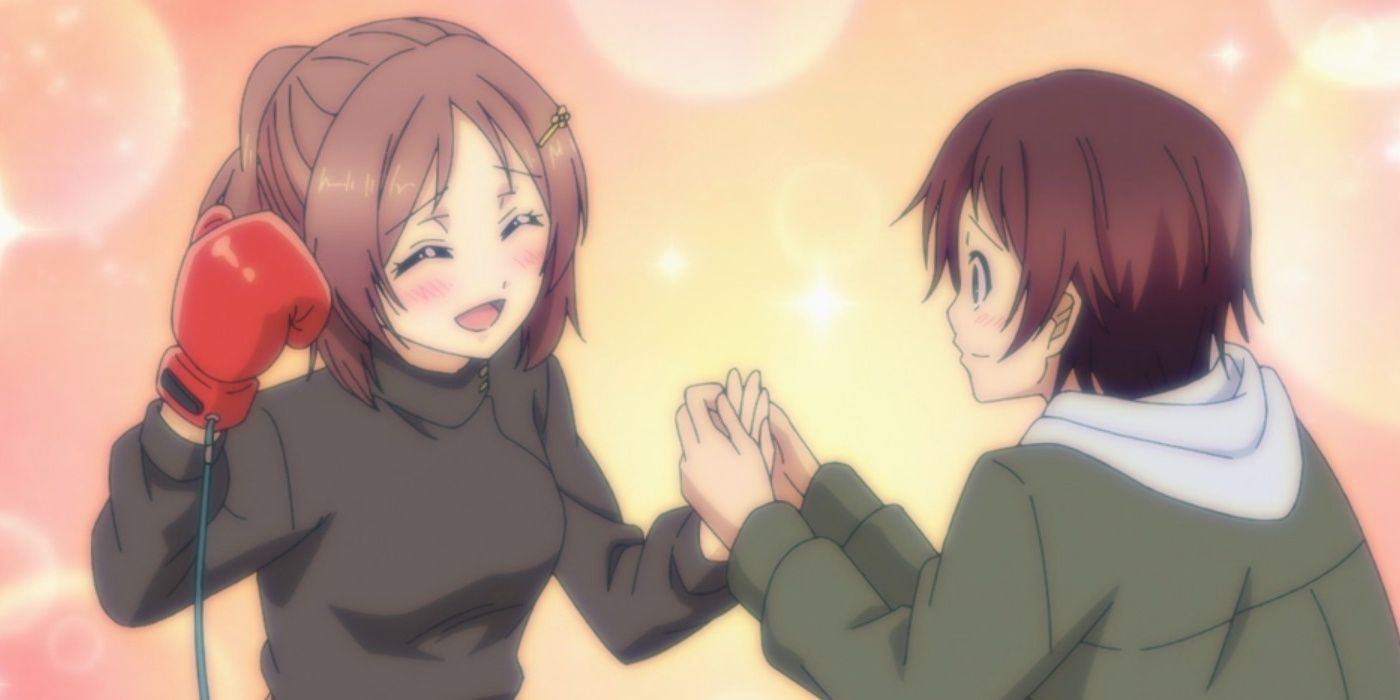The following contains spoilers for Season 2, Episode 9 of Science Fell in Love, So I Tried to Prove It, now streaming on Crunchyroll.
Season 2 of Science Fell in Love explores the fields of love and science in all-new ways, from oxytocin and saliva tests to using the Kinsey scale to determine who likes 2D or 3D girls in the general population. This season also puts more emphasis on the "normal" kind of love -- the kind that the deredere scientist Kotonoha Kanade wants.
Unlike the cool kuudere Yukimira Shinya or the goofy Himuro Ayame, Kanade pressures herself to be a "normal" girl whom everyone in society can accept, but this does serious damage to her self-esteem and her dating life alike. It also stems from her past experiences with bullying at school, including that of her classmates. Her inner demons are deeply rooted in her mind.
In Episode 9, before her second date with the charming young man Naoya, Kanade reflects on her painful past experiences, all of which directly tie into her insecurities regarding normalcy vs. being "weird." Ever since her girlhood, as the flashback shows, Kanade has been an energetic, slightly tomboyish person who mildly concerned her parents with her reckless antics and un-girly taste in backpacks. In the flashback, Kanade's parents gently "correct" their daughter about proper behavior, giving Kanade the impression that self-expression is a problem and her authentic self is faulty. Kanade eventually internalized all this in her childhood, and by high school, she worked hard to never stand out or show her true self.
The flashback also shows a young Kanade witnessing another girl in her class being mocked by a group of boys for wearing a blue backpack instead of a red one, with backpack colors corresponding to sex in most cases. Kanade once wanted a blue backpack too, just like the other girl, but both girls face resistance in the flashback's events for choosing the boys' color instead of red. In the eyes of some anime fans, it seems the characters are being petty and overreacting, or even unfairly suppressing Kanade's and that other girl's self-expression. However, their societal context works against them.
It is generally known that, among other nations, Japan is a community-oriented country with a culture shaped around conformity. Even children are held to strict standards about their behavior, clothing and hobbies, with unusual hair colors, accessories and more being discouraged. It's a nuanced topic in both fiction and real life, but in short, the off-beat Kanade faces constant resistance for being her own self, and it makes her miserable. She faced only minimal bullying, but at the price of suppressing her true self to be the girl everyone else expects, and it's a miserable experience. For Kanade, it's a lose-lose situation, and even if college gives her the freedom to be more unique, she cannot easily unlearn these early lessons. And that deeply concerns all her friends, most of all Ayame.
The issue of conformity is the biggest issue for Kanade in Science Fell in Love, but this topic has also touched the lives of this anime's other main characters, and those in many other anime series as well. To begin with, a younger Ayame was seen being mocked, bullied and ostracized for being a "weird" girl who liked insects and studying, only to feel empowered when a young Shinya openly related to her and encouraged her to be her true scientist self at all costs. Ayame and Shinya cracked the code for enduring society's disapproval of their unusual ways, but Kande has yet to catch up, and Episode 9's contents prove that.
Similarly, the gamer scientist Kosuke faces constant disapproval for his love of dating sim games and moe 2D girls, as opposed to keeping his mind on the real world around him and the real, living women in it. Nonetheless, Kosuke stubbornly defends his "weird" interests, and even if Ena teases him for it, deep down, she accepts Kosuke and his peculiar ways -- and that's all Kosuke needs. Then there's Ibarada Ena, a self-proclaimed chunibyo who loves Goth lolita clothes like an overgrown eighth-grader who also happens to love games. Compared to "normal" Japanese young women, Ena is downright bizarre, but never once did she feel any self-doubt. And neither should Kanade, no matter what the schoolyard bullies might say.



